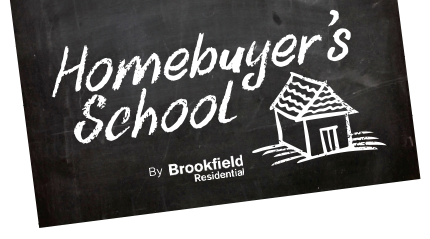In this episode of Homebuyer's School, we discuss how a mortgage actually works and all the elements involved when borrowing to buy a home. We explore a lien, what happens if you can't pay off your mortgage and mortgage portability. Finally, we talk about the types of mortgage penalties and how to avoid them.
Subscribe to our YouTube channel:
Prefer to listen?
What we discussed:
Hi, everyone, I'm Karl. Welcome to another Homebuyer's School video, a channel where you get the latest strategies, tactics, and tips from home buying experts.
And remember, if this is your first time on this channel and you're wanting to get the latest strategies from the experts, hit the subscription button below. Hit the little notification bell so you don't miss anything.
So today [00:00:30] I'm joined by Mujtaba Syed, Mortgage Specialist with the Bank of Montreal. And today we're going to talk about actually:
How do mortgages work?
So can you tell me a little bit more about how mortgages actually work?
Mujtaba Syed:
So what a mortgage is is a specific type of loan that you're using to purchase a home or a security, like a real estate security.
So it could be residential or it could be commercial, but mortgage technically is used as a loan to purchase a home.
Very few people have enough money to buy a house in cash, so what you do is that you come up with a certain amount of money, which [00:01:00] is your initial down payment, which is going to be your contribution towards the mortgage.
And then you will go to a bank and they will come up with the remainder.
So they will lend you that amount, depending on how much you qualify for, so you can go ahead and buy that home.
They will now put a lien on that property until you have paid off.
Now, your term could be five years and your amortization, which is the life of the loan. So clients always ask me what is an amortization?
Amortization means the life of the loan. So obviously 25 years would be a life of a loan, which means your payments are kind of spread [00:01:30] out over 25 years, because it'd be very difficult for you and be very hard if you had to pay it off sooner.
So they would actually go over a certain life of the mortgage, which is 25 years.
Rates are actually based on terms. So terms are anywhere between 6 months all the way up to 10 years.
Most Canadians will go with a five-year term because they feel like five-year is the longest time that they want to commit to a certain home or to a certain lender, and rates are pretty decent.
So let's say your rates are based on a five-year term of five increments that you decided to stay [00:02:00] with this bank at a certain rate that you're going to be willing to pay them back based on what they've lent to you, and [inaudible 00:02:05] amortization are life of the loan over 25 years.
So a mortgage is, in a nutshell, a loan that you get to buy a home that a lender would provide to you.
Karl Yeh:
Does it have to actually be a mortgage? Like can I just go to the bank and say, "Hey, I need to borrow $150,000," and they ask you why? And you're like, "Well, doesn't matter because I just need to borrow $50,000."
Mujtaba Syed:
It definitely matters.
Every time you go into a bank and you ask for borrowing [00:02:30] or you have some borrowing needs, they're going to ask you what you need those funds for.
Every process with the bank when their borrowing something has different needs.
So it will be looking at you using it for different purposes, and then we might have different collateral needs for that. We might have different qualifying needs for that, different income requirements.
So the bank will walk you through that.
So it definitely does matter.
If you're going to borrow for a mortgage, the bank will tell you it's for a mortgage, and then you have to actually provide for them what they need to get it approved.
What's a Lien?
Karl Yeh: So when you [00:03:00] mentioned a lien, what does that mean?
Mujtaba Syed:
A lien just means that this thing is not free and clear.
Let's use a home for example. Let's say you pull a title of a home, a title is like a deed of ownership, and you see there's a lien on it for like $350,000, with let's say Bank A. That means that of this home, $350,000 belongs to Bank A. Until you pay that $350,000 off or until they release their lien.
If you want to be able to buy that home, you're a buyer and the seller provides you a title with $350,000, [00:03:30] you want to make sure that this lien is off this property before you can buy it.
Anyone that holds the lien on that property can actually claim ownership of that property if he refuses to pay.
So it's a very, very important thing.
This is how banks protect their funds, their investment into a home, into a car, into any other assets they're lending onto. It's to say, "We lent X amount of dollars, we own X amount of this property until it gets paid off."
What happens if you can't pay off your mortgage?
Karl Yeh:
And that's kind of what it means when someone forecloses on a mortgage. [00:04:00] They can't afford to pay the mortgage anymore, which means they probably have to leave the house.
Mujtaba Syed:
Yeah. So usually if you can't afford to pay a home, the bank will absolutely try to work with you in the beginning to see what they can do.
But unfortunately, let's say you can't pay it back, there's a lien on the home with Bank A, Bank A will definitely take that home and they will try to recuperate any funds that they have lent by say, putting it up for sale, putting it up for auction, whatever it is, so they can recuperate some of that cost. So that is what goes into a foreclosure [00:04:30] process.
Does your mortgage transfer if you buy a new home?
Karl Yeh:
So let's say you buy a house of $350 and you take out, you only pay a 5% down payment, and you borrow the rest. What happens when you sell that home and buy a new home? Does your mortgage transfer over, or do you have to get a brand new mortgage?
Mujtaba Syed:
A lot of mortgages have terms and conditions. Terms and conditions are very, very important.
Now, most mortgage have a term built in which is called portability, where you can actually port your mortgage from one property to another [00:05:00] as long as you qualify to do so.
You still have to go through the qualification process. A lot of my clients ask me and said, "I qualified five years ago, why do I need to go qualify again if I'm just moving the mortgage over?"
It's because every time we do that, we need to see if the situation has changed. It does go through the approval process like a brand new mortgage.
We will appraise the property again or do our due diligence on the property again to make sure it fits our criteria again.
Mujtaba Syed:
But what it does, it saves you from any penalties.
So let's say you were on a term of five years, you decided to sell before that five-year term is [00:05:30] up, there's going to be, you signed a contract with the bank to be there for five years, it's going to be some penalties incurred.
But you can port your mortgage onto a new property, some banks will give you 30, 60, 90 days, maybe 120 days to do that depending on the lender, so that by the time you sell you have a certain amount of time to find a new property, you can save yourself those penalties.
So you're not locked into a home for too, too long, but every mortgage should have a portability option built into it.
Karl Yeh:
But how about if the home that you're buying is significantly [00:06:00] more or significantly less than what your previous home is?
Does that portability still take into account the price of the home that you're buying?
Mujtaba Syed:
Yeah, absolutely. So let's say scenario one is you're buying a home that is more than you what you previously had.
So you bought a home for $400,000. The mortgage amount is $350,000, but now you're looking to borrow $650,000 right? There's a $300,000 difference.
Let's say you have interest rate of 3% on the $350 and you're needing to borrow another $300,000, and today's rates [00:06:30] were at 3.5%, for example.
What the bank would do is that it would it make it into one mortgage of $650,000, and they would do a blend of the rates.
So they'll blend 3% with 3.5, so you fall right into the middle, and then you will have one mortgage based on that.
You still get to save your penalty, you still get to save any other costs that might be associated in paying out sooner, and you get the one mortgage.
Scenario B, let's say you're buying something which is considerably less than what you originally had. Example is-
Karl Yeh: $200,000.
Mujtaba Syed:
$200,000 is your [00:07:00] mortgage and you're buying something for $100,000. So you sell your home, you borrow for a hundred thousand.
You will pay a payout penalty on the amount that you're not borrowing, which is going to be the hundred thousand, which is still going to be a significantly less penalty than the whole amount, but you will pay a penalty on the amount that you're not borrowing, and you just take your decreased amount at whatever the interest rate that you had at the $200,000.
There won't be any blending at that time, because there's no greater value to be added to the mortgage, it's actually just decreasing that mortgage by that amount.
Mortgage penalties
Karl Yeh:
Do you also pay a penalty for a home that's [00:07:30] more expensive as well?
Mujtaba Syed:
You won't pay a penalty if you don't break your term. If you keep your term on the mortgage amount, let's say it's $350,000, that's it. That $350,000, there's no changes to that.
There's no penalty incurred. We could do a blend and an extend if for buying a property worth more, but there'll be no penalties incurred to do that unless you decide you want to break that original agreement of 350, and then the penalty will be based on the scenario.
If you're taking less, if you're not taking any of it, the penalty will be based on that.
Karl Yeh: [00:08:00] Perfect. Do you have anything else to add?
Mujtaba Syed:
Definitely. So penalties, they're a touchy subject when coming to clients with the banks. It's something that a lot of clients don't understand because there's two ways to calculate a penalty.
One is called just three months interest, so depending on what kind of mortgage you have, you can be charged three months interest for something called IRD, which is called interest rate differential.
I'm not going to go into it a little bit too much because it's a very complicated process, so the best thing to do is that if you're looking at selling your home or if you're looking at, when is it at the time that you're looking, [00:08:30] you're finding a bank, you're wanting to go through their terms and agreements, find out with them to see how they calculate penalties.
That could be a very big thing because you might not want to be in that home as long as you might think. So you want to do this due diligence upfront to find out, "If I do leave sooner, what kind of penalties am I looking at?"
And let the lender come up to you and say, "Listen, this are the numbers that we're talking about. It could be in this range and this range." If you're comfortable with that, great. If not, maybe we assess your situation.
Maybe even we assess if you want to be in that house longer and maybe take [00:09:00] a shorter term. Instead of going for a five-year term, you know you want to leave in two, maybe go for a two-year term.
Maybe go for a one-year term.
So those are conversations that you want to have in the beginning. No one enjoys paying a penalty, I certainly don't.
Karl Yeh:
Perfect. Well, thank you very much for watching. So if you want to know more about the mortgage approval process, we've got a great video series here, as well as other home financing videos that you can see here. Don't forget to subscribe to keep hearing from the experts, and we'll catch you in our next video.
Your turn
Let us know if you have additional mortgage or financing related questions that we can answer by submitting them in the comments section below.
Homebuyer's School publishes new content weekly so subscribe or check back regularly for the latest information, strategies and tips from home buying experts.
About Mujtaba Syed:
Mujtaba is an experienced mobile mortgage specialist with a demonstrated history of working in the banking industry. Skilled in Negotiation, Commercial Lending, Banking, Sales, and Credit Analysis. Strong product management professional.





















